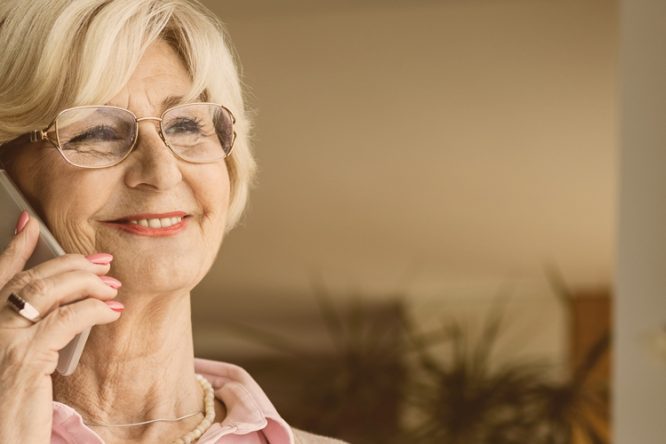Q&A with CC Young Resident Advocate Dess Rolfe
Can you give an overview of what a resident advocate does?
The role of the resident advocate at CC Young is to represent the residents and their families in expressing unresolved issues and concerns, taking them to management, and bringing those concerns to a timely solution. I listen, observe, interact, communicate and resolve.
How do you get in touch with residents?
I attend meetings and functions where they are present. Because I conduct surveys on the services we offer, I am in touch with many of them daily. Also, for the convenience of residents and families, we make information about me and the advocate position readily available on our website, in the resident handbook, and other CC Young publications on campus. I also hand out a lot of business cards, and my cell number is on the card.
My goal is for our residents to view me as a friend. If they have an issue that cannot wait until business hours, I want them to feel free to call me anytime.
How was the resident advocate position created?
Shortly after Russell Crews became CC Young’s President and CEO, he talked to me about a role he had in mind for me. We had worked together at another company, and he knew my background and work history. We talked about what he envisioned and what this title might be for this particular role. At that time, he said my main responsibility would be “to make the residents happy.” We began there and went forward. Over the past eight years, my responsibilities have evolved around this original concept.
Why is it so important to have a resident advocate?
The residents respond in a positive way to having their own advocate on campus — someone they know and trust who will always have time for them. In being available and listening to the residents and sometimes families, issues can be broken down and resolved before they grow in dimension.
What do you hear from residents?
The residents tell me they are happy that I am here to help them. They know they can call me, and together, we can get to the bottom of any concern and solve it quickly. They also tell other people. Many times, when I meet a visitor or new resident, they say, “I’ve heard of you. You helped my relative when they were here at CC Young.”
What is a typical day?
There are no typical days. While there are scheduled meetings, events and activities, the balance of my time is spent in relationship-building and problem-solving.
What advice would you give communities?
To have an advocate who is immediately available when an issue arises and one who proactively reaches out to residents and families very quickly. It’s important in this role to be a good listener, have empathy for the situation, look into the matter, and follow up with an answer.
What is your background?
I’ve been at CC Young for 12 years, and in this role for eight. I believe many of my previous positions have prepared me for the resident advocate position. My first summer job in high school was at a small hospital of 25 beds. Later, I became a certified medical secretary, and was a family service counselor at a local funeral home. I’ve also worked for several physicians and psychiatrists. A few years ago, I became a Texas certified mediator.
Most recently, I was asked by CC Young to teach the customer service/hospitality module in orientation to all new employees.
What is CC Young’s point of view on customer service?
Our vision is to enhance the quality of life for all we serve. We put the residents first. It is very important to build relationships through our respectful and caring approach.
What’s the most rewarding thing about your job?
Seeing that the residents and families are happy, with as little stress as possible, and that their issues are resolved quickly — to serve in such a manner that their lives are enriched because I was there to help.



